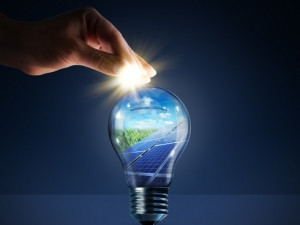
Germany's SMA Solar - the world's biggest manufacturer of solar power inverters, a critical component in solar power systems - is closing shop in SA, citing government's lack of commitment to renewable energy.
The company opened its multimillion-rand manufacturing facility in Cape Town in 2014. The facility includes a production line and quality test centre for SMA's Sunny Central inverters, warehousing, as well as the African branch of the SMA Solar Academy training centre.
The closure comes after Eskom's decision to no longer sign power purchase agreements with private producers after the current round is finalised.
Speaking to ITWeb this morning, Thorsten Ronge, MD of SMA Solar SA, confirmed the company was shutting down the production of solar power inverters at the Cape Town facility. He said only the sales team will remain in the country.
According to Ronge, SMA Solar established the manufacturing plant following the introduction of the Renewable Energy Independent Power Producer Procurement Programme (REIPPP). The programme, which has widely been hailed as a success worldwide, called for 3 725MW of renewable energy technologies.
The REIPPP programme has, over the past six years, attracted a total of over R194 billion in investments, with over R53 billion (27%) of this coming from foreign investors.
Speaking up
Nonetheless, Ronge pointed out there was growing frustration within SMA Solar about the REIPPP programme.
"There were always delays about the bids and lack of commitment to the programme. The factory stood idle for a while and this always affected our customers. The environment was unstable," he said.
According to Ronge, eight jobs will be lost as a result of the shutdown, although some of the employees will be transferred to the sales department.
He pointed out the production of the solar inverters will be consolidated at the company's Germany and China plants.
SMA Solar also reportedly sent a strongly-worded letter to trade and industry minister Rob Davies, citing its displeasure over government's lack of commitment to renewable energy, which Ronge confirmed but declined to send ITWeb a copy. He said the company has not had any feedback from the Department of Trade and Industry.
The department's spokesperson could not be reached for comment at the time of publication.
Chinese impact
Meanwhile, internationally, the Germany-based solar giant is struggling to stay above water amid increasingly cut-throat global competition and a downturn in the Chinese solar market.
The Cape Town facility is not the only casualty, as the company also decided to close operations at its Denver plant, affecting about 280 full-time employees.
SMA Solar had just turned the corner after years of losses. The Hesse-based company's stock price had climbed 238% and shareholders took home a dividend for 2015, marking the first time in two years. Then the Chinese solar market collapsed, dragging down SMA Solar's stock price with it. As of Thursday, the company's share price had dropped 9% to EUR37 from EUR50 at the start of 2016.
"The acceleration of price pressure in the solar industry has been unexpectedly strong in recent weeks," SMA chief executive Pierre-Pascal Urbon says in a statement.
Having surpassed Germany as the world's largest market for solar panels, China has set a national target for new commercial solar power capacity of 18.1GW for this year, below initial market expectations.
Risky move
The South African renewable industry has been lambasting Eskom following its decision to snub independent power producers (IPPs).
Bruce Raw, programme manager at GreenCape Energy, says the true impact of cancellations, delays and uncertainty around the IPP and renewable energy programmes go much further than the energy sector.
"It puts at risk thousands of current and future jobs, a host of local manufacturing companies, communities' welfare and, most importantly, undoes what is arguably the most effective public private partnership model this country has ever seen," Raw says.
The direct benefits of the IPP programme are already clear for all to see, he notes. Since the inception of operations in 2014, CSIR figures show connected wind and solar PV facilities have contributed close to R5 billion in economic value to SA's economy, as a result of avoided load-shedding in 2014 and 2015, as well as avoided diesel and coal costs.
Moreover, Raw adds, the inclusion of the private sector in developing major infrastructure such as generation facilities and upgrades to points in the grid, has relieved the public fiscus of spending over R37 billion in construction costs (as of March 2016) with a projected total of R73 billion (rounds one to four projects).
"These are funds which could be diverted to supporting other socio-economic upliftment programmes across the country. It has further been projected that at the current, built-in South African prices, the combination of IPPs spanning renewable energy and liquefied natural gas will be both cheaper and cleaner than new build coal."
Share